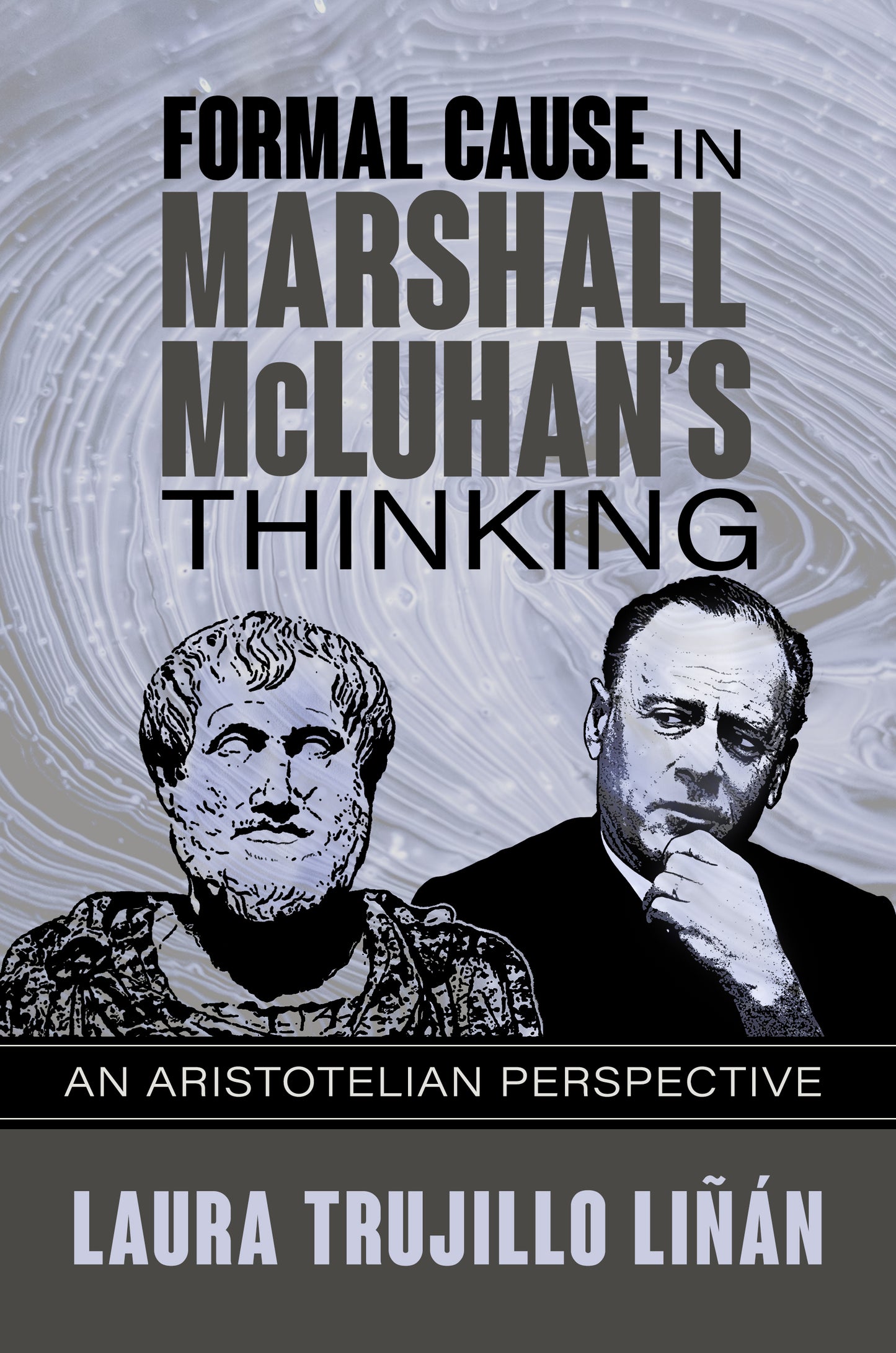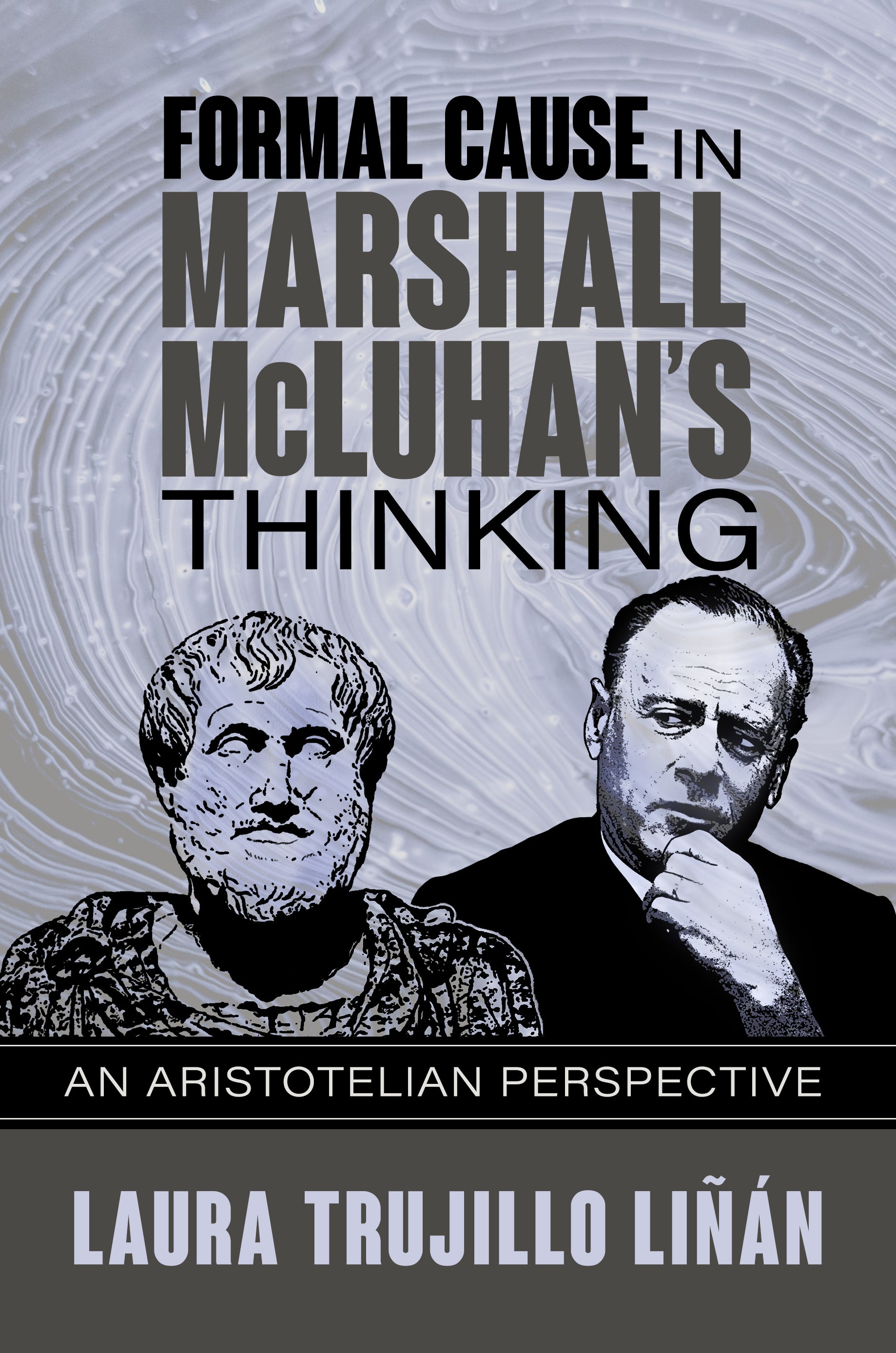Institute of General Semantics Store
Formal Cause in Marshall McLuhan's Thinking: An Aristotelian Perspective
Formal Cause in Marshall McLuhan's Thinking: An Aristotelian Perspective
Couldn't load pickup availability
Formal Cause in Marshall McLuhan’s Thinking: An Aristotelian Perspective
Laura Trujillo Liñán, Foreword by Lance Strate
The concept of formal cause was originated by the ancient Greek philosopher Aristotle, in his treatise on metaphysics, later elaborated upon by the medieval philosopher Thomas Aquinas, and more recently claimed by the modern media philosopher Marshall McLuhan. Introduced as one of four types of causality, alongside that of material cause, efficient cause, and final cause, McLuhan adopted formal causality in an effort to explain the effects of media and technology. This study reviews, compares, and contrasts Aristotle’s and McLuhan’s understanding of formal cause in relation to contemporary media theory, non-aristotelian systems, and the field of media ecology.
Ever since we thought to think about it, causality has been a slippery beast to grapple with. To make it easier to grasp, we often revert to the more convenient, if simplistic, terms of 'cause and effect,' dismissing out of hand what doesn't easily fit there, or assigning the magical, fantastic, or mysterious as agents beyond our human understanding. Against this impulse, Laura Trujillo Liñán has waded into often-murky waters, and in an admirable attempt to discover clarity, employed considerable skill and effort, and enlisted the assistance of Aristotle and McLuhan to her task. Liñán's book is an important contribution toward forming a more complete map of the challenging terrain that is formal causality.
Andrew McLuhan, Director, The McLuhan Institute
How do we understand the complex relationships between media and their effects With this book, Laura Trujillo Liñán adds to a growing body of work attempting to tackle this persistent question. Using lessons drawn from Aristotle and McLuhan, she offers an application of Aristotle’s four causes that sheds new light upon—and raises new questions about—McLuhan’s challenging slogan, “the medium is the message.” The book thus helps to advance discussion of important philosophical questions about speech, written language, and contemporary media.
Gerald Erion, Professor of Philosophy, Medaille College
Laura Trujillo Liñán’s brilliant study explores formal cause as a key concept informing McLuhan’s belief that media transform individuals and society and that it is possible to understand and control such changes by studying and even exposing often-hidden effects. Her study also roots McLuhan’s perspective in Aristotelian, Thomist, and general semantics theory. Because Trujillo Liñán treats abstract concepts with linguistic clarity and foundational grounding, her book will be a valuable text for students of media. At the same time, by tracing time-based connections and philosophical traditions, she also reveals connections poised to enrich the work of more senior scholars.
Jaqueline McLeod Rogers, Professor and Chair, Department Writing, Rhetoric, and Communications, University of Winnipeg
There is so much to recommend in this book that I scarcely know where to begin. Suffice it to say that by conducting a comparative analysis of Aristotle, Korzybski, and McLuhan, and by applying an Aristotelian perspective to the notion of formal cause in Marshall McLuhan’s thinking, the book’s author, Professor Laura Trujillo Liñán, has made a significant contribution to the fields of philosophy, general semantics, and media ecology. Highly recommended.
Martin H. Levinson, Trustee and Past President, Institute of General Semantics
Shipping & Returns
Shipping & Returns
Share


